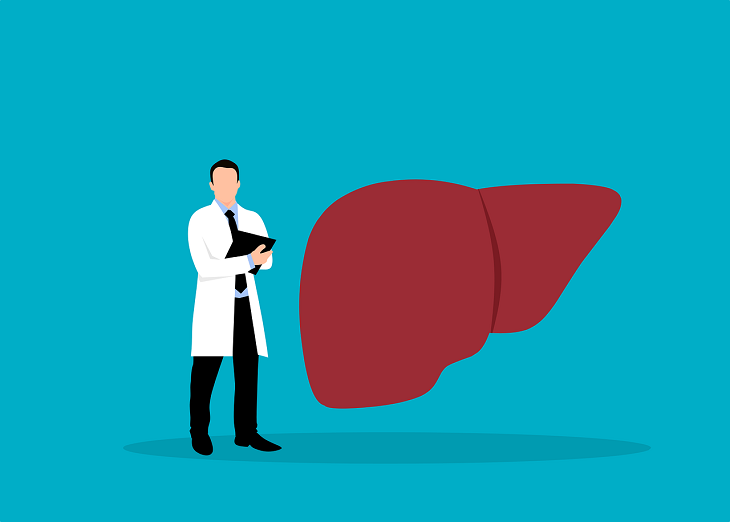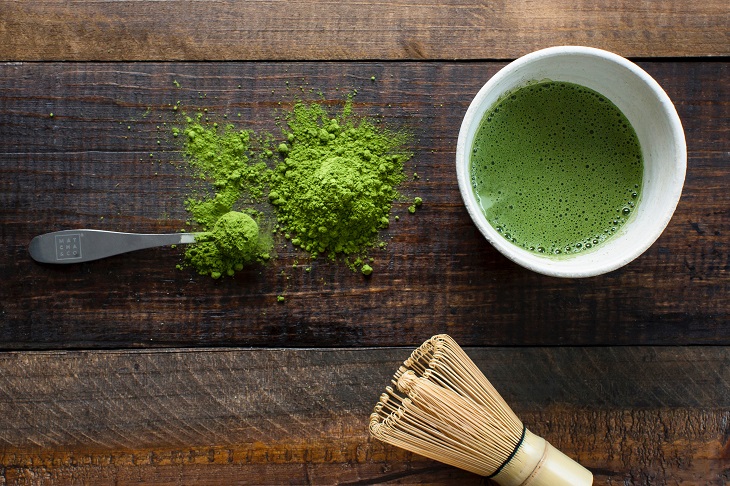THE DAILY DOSE
How Antioxidants Affect Liver Health

The liver is a vital organ located in the upper right area of the abdomen, on top of the stomach, right kidney, and intestines. Although it is small, only weighing roughly three pounds, it packs a mighty punch when it comes to your overall health. The liver has several main jobs that contribute to how healthy you are.
Firstly, it regulates chemicals in the blood and excretes bile, which is a digestive fluid that helps you break down food. Bile helps the liver get rid of waste. The liver itself holds 13% of all the blood in your body, because blood from the intestines and stomach passes through it so that it can be processed. The processing of the blood involves breaking down drugs or other medications so that they can be metabolized through the body and used. The liver also helps to create certain nutrients for the body to use. (These are simply some highlights – overall, the liver is responsible for as many as 500 bodily functions!)
Some of the things that are broken down by the liver create free radicals, which are unstable atoms that can cause cell damage. Antioxidants are designed to neutralize those free radicals so that cell damage doesn’t occur. But what are antioxidants, exactly? And how do they impact the liver? Read on for all you need to know about how antioxidants affect liver health.
What are antioxidants?
In the simplest terms, antioxidants are molecules that help to fight off free radicals. Although the body has its own antioxidant defense system, antioxidants are also found in foods such as vegetables and fruits. The naturally occurring substance glutathione acts as an antioxidant within the body, while some vitamins also act as antioxidants, such as vitamins C and E. Antioxidants are essential to survival – every living thing needs them.

The reason why antioxidants are so important is because they make sure that there is an appropriate amount of free radicals in the body. While an overabundance of free radicals can lead to cell damage, a deficiency can also hinder your health because free radicals do have some positive roles in the body. (For example, immune cells use free radicals to help the body fight off infections, which keeps you from getting sick.)
The balance between free radicals and antioxidants is what’s important for overall health, and that is why the two are so important. If there is an imbalance, oxidative stress can occur, which can lead to many health issues including cancer and even liver damage.
Are antioxidants good for fatty liver?
Fatty liver disease, also referred to as steatosis, is caused when there is too much fat build-up in the liver. Fatty liver disease is typically characterized as the liver having 5–10% of its weight in fat. There are many things that can cause fatty liver, such as alcohol abuse, diabetes, or obesity. When it occurs, the liver cannot function as it should.
According to research, antioxidants can be helpful in preventing fatty liver disease because of the way they protect against inflammation and fat accumulation. Other studies have found that people who have fatty liver disease may benefit from introducing more antioxidants into their system because it can help to regulate the way the body synthesizes fatty acids from glucose and other substances.
Can antioxidants cause liver damage?
While the natural antioxidants that occur in the body and food aren’t likely to cause liver damage, some reports have linked the overuse of antioxidant supplements with liver damage. This is because everything that goes into the body, especially medications and supplements, is eventually filtered through the liver. When there is too much of any given thing, the liver cannot effectively clear it out. It comes down to dosage: the higher the dosage, the more likely your liver is to struggle with processing.
That being said, the clinical research surrounding liver damage caused by antioxidants is scarce. While some studies have found that the use of herbal and other types of supplements has increased the risk of supplement-driven liver damage in the country, the types of supplements are not specifically named as antioxidants. Most of the evidence surrounding the use of antioxidant supplements shows beneficial side effects for those with liver damage or disease.

What antioxidants are good for the liver?
While all types of antioxidants are good for the body, research has found that some stand out when it comes to liver health. One particular study investigated the use of antioxidants to support liver health and found that the ones most closely associated with positive benefits included:
- Curcumin
- Quercetin
- Naringenin
These three antioxidants were shown to be possible and viable treatment options for people with liver injuries.
Other research has found that certain foods containing antioxidants may be beneficial, such as:
- Green tea
- Grapefruit
- Blueberries
- Cranberries
- Grapes
- Beetroot juice
Beetroot juice, in particular, contains antioxidants known as betalains, which have been shown to reduce the oxidative stress that can lead to cell damage in all areas of the body, including the liver.
Your liver is a miraculous organ that can make or break your health, depending on how you take care of it. Having adequate intake of antioxidants will ensure that you don’t fall victim to free radical damage and other issues that could hinder your liver’s ability to do its job.
Featured image by Gemma Evans on Unsplash